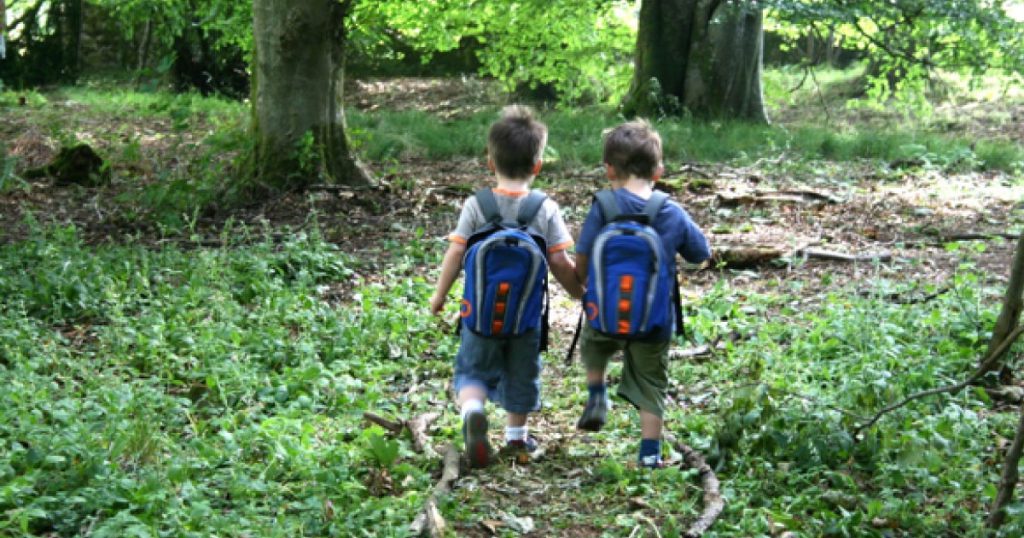
No Jab, no p(l)ay: The ethics of vaccination for early childhood educators
Catharine Hydon in Conversation with Trent Moy
Over the past 18 months of this global pandemic, early childhood educators have navigated a myriad of ethical challenges. We have seen temperature checks for children replace warm hugs and lingering conversations. Parents were barred from entering our rooms while educators promoted the need to ‘check in’ with a QR code while balancing bags and hurried goodbyes. And now, as this pandemic escalates, particularly in our nation’s two largest states, educators are once again on the front line and being asked to monitor eligibility.
For the most part, even though these can be complex and difficult ethical decisions, educators have what I like to call ‘match fitness’. We are used to making decisions about the best interests of children and their families. And we are increasingly skilled at using the ECA Code of Ethics to guide these decisions.
But we have an ethical Achilles heel.
Our ethical relationship with our colleagues and the profession constantly trips us up. Just as we are making respectful decisions about the rights of vulnerable children to access early childhood education, we are ripping each other to shreds on social media. I have talked about this in previous blogs that you can find here and here.
And now educators are part of another significant ethical discussion—the ethics of mandatory vaccinations for early childhood educators, which will once again test our capacity to engage in respectful and professional dialogue. In the light of the NSW Government’s decision to mandate vaccinations for teachers, we have an opportunity to engage in conversations that cultivate shared understandings rather than aggressive positioning. We desperately need to step back from unfounded and reactive social media posts to think deeply about who we are and what we want for children, families, educators, and professionals.
As others investigate the legalities[1] of this shift in professional expectations, we ought to turn our attention to the ethics of this decision.
Of course, for some of you, you have long since decided to become vaccinated for your own and, no doubt, others’ best interest. But what if this was to become a mandatory requirement for all educators? Are you still on board? What if a well-regarded colleague declined—what then?
To help us navigate this space, I am joined in this blog by a friend of ECA, Trent Moy, lecturer and consultant with a long career in understanding ethics in our contemporary lives. Trent assisted ECA in the development of the 2016 edition of the Code of Ethics.
Over to you, Trent. Where do we start?
We start by acknowledging that we already know the answer. Our ‘ethical intuition’ is powerful and it pre-empts the answer to any ethical question, even before we’ve really had a chance to understand the full dimensions of the question and develop a well-considered response. As I’ve listened to you explaining the challenge for early childhood educators, I’ve created a quick set of moral judgments that tell me the ‘correct’ answer. I know what is fair, good, right … and now I just need to backfill with some reasoning.
And that’s the danger. Ethical questions can easily turn into battles where we justify our intuitions. You can see this in social media ‘conversations’.
A better approach is to acknowledge our intuition by writing down the ‘correct’ answer and the key moral and affective, or emotional, responses that we are experiencing. We can park our powerful ethical intuition while we access more of our thinking and perspective-seeking capacities.
In addition to taking on expert legal, HR and other advice, I’d suggest we consider: (a) the personal values that are at stake; (b) the duties and rights of educators and children; (c) the ECA Code of Ethics of the profession.
Personal values
At a local level we need to check that we fully understand the values that our educators believe are ‘at stake’ here. What values do they think will be upheld by requiring all educators to be vaccinated, and what values will be diminished? Importantly, we need to be alert to what might be unpopular, or faint voices in this conversation.
Competing values are likely to be between ‘liberty’ or ‘autonomy’ and ‘care’ or ‘safety’. I think it’s important that we see the values that people are expressing as genuinely important and fundamental to their idea of living well, rather than labelling the position that a person may take on an issue—e.g. ‘anti-vax’.
It sounds obvious when we step back, but it’s helpful to ask our educators whether there’s tension between the prioritisation of individual and collective values, or if we hold the same values priorities but see those values being delivered in different ways. For example, two workers may value ‘safety’ but see mandatory vaccine policies/mandates as creating a safer or less safe environment. It’s worth getting to understand the deeper values dialogue.
Duties and rights
Working in any ‘caring’ field involves balancing personal choices and broader duties to others. No doubt COVID-19 and vaccinations have highlighted duties of care across many professions but we must question whether we are imposing a new, and possibly unreasonable, duty on educators to be vaccinated.
For many educators a duty to be vaccinated is motivating—it’s entirely consistent with their idea of caring for children. It aligns with their idea of being a good professional and the Rights of the Child.
For others, the burden of mandatory vaccination may be too high for them. Here, we need to consider whether we are causing irreparable damage to somebody’s rights or imposing a condition of employment that (fairly) protects or promotes the rights of others.
One way of facilitating discussion is to consider whether we are acting for the benefit of the least advantaged, or vulnerable. Have we sought out the perspectives of those individuals? Have we sought dispassionate and expert assessment of the possible burdens or benefits? Could we be imposing a burden on people who already suffer disadvantage? Are there ways we can mitigate this burden?
ECA Code of Ethics
The Core Principles in the ECA Code of Ethics (2016) are based on a ‘commitment to maintain the rights and dignity of children, families, colleagues and communities’. Among the commitments is a primary commitment to ‘act in the best interests of all children’ and to ‘create and maintain safe, healthy, inclusive environments that support children’s agency and enhance their learning’.
Given that the ECEC profession has a well-developed Code which is used to guide other ethical decisions and practice, I think it’s important that its used when considering COVID-19 vaccination policies/mandates. In doing so, it’s important that we earnestly assess the purpose of those policies/mandates against the Code.
We need to be alive to discussions about mandatory vaccines being confused with agendas and objectives that are not wholly consistent with the Core Principles in the ECA Code.
As expected, Trent, you have helped us think beyond the either/or binary into values and the perspectives of others. Ultimately I think we are talking about embracing the ‘common good’—the way we can each play a part to ensure every individual, especially the least powerful, can flourish.
Reference: Early Childhood Australia (ECA). (2016). Code of Ethics. ECA. http://www.earlychildhoodaustralia.org.au/our-publications/eca-code-ethics/
[1] This blog is not legal advice. It is instead a collection of ideas that hopefully provoke further discussion. It is important that individual educators and services seek their own legal advice as required.
_____________
Note: Catharine and Trent will be facilitators for the Early Childhood Australia Colloquia on Leadership and Ethics to be held in February 2022. Read more about the Colloquia here.
ECA Recommends
Code of Ethics
Ethics in Action: A practical guide to implementing the ECA Code of Ethics
Authors: Dr Lennie Barblett, Catharine Hydon and Dr Anne Kennedy
The ECA Code of Ethics is a set of statements about appropriate and expected behaviour of early childhood professionals. Explore the ECA Code of Ethics publications here.
_____________
Co-author
Trent Moy is the founder of Halide, a specialist consultancy in ethics, decision-making, culture and leadership. He consults to variety of clients from ASX-listed companies to elite sport and not-for-profit organisations. His experience includes 25 years of management and leadership in financial services, including the leadership of corporate responsibility and sustainability for one of Australia’s largest companies. As a specialist in ethics, which he defines as ‘thinking and doing decisions when something of critical value is at stake’, Trent has a deep understanding of complex organisational cultures and culture change, a dislike for rules, and a passion for cross-discipline and lifelong learning. Trent is a casual academic with Australian Catholic University, where he teaches educational philosophy and social justice. He is a long-term associate of The Ethics Centre and a Fellow of the Institute of Community Directors which seeks to improve the governance of Australia’s not-for-profit organisations. He holds qualifications in arts, business and higher education.


